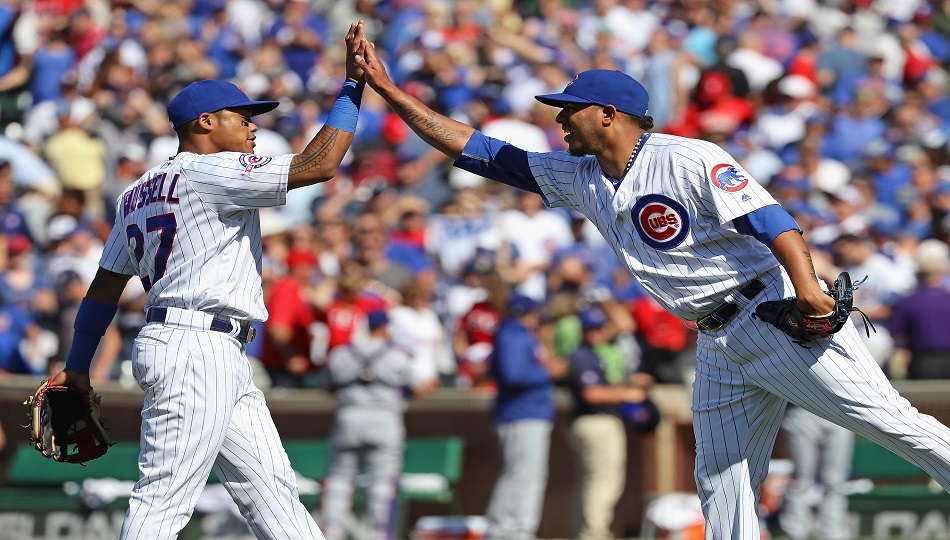This sentimental World Series favorite is also the logical one. When compared to the other postseason participants, the Chicago Cubs only come up short in weaknesses.
The lineup features two MVP candidates and the rotation boasts four legitimate Cy Young contenders. As a team, the Cubs rank third in runs scored, second in on-base percentage, first in ERA, first in batting average against, and first in the most important category…victories.
After 103 wins during the regular season, just 11 separate Chicago from breaking a hex that’s lasted more than a century as well as setting off a celebration in the Windy City that will make every other before it seem tame.
So what could possibly stop this club from it’s long-awaited date with destiny? The potentially derailing forces are more external than internal.
The Cubs can be their own worst enemy when it comes to getting clutch hits. With runners in scoring position, Joe Maddon’s club hit just .252, which ranked 21st in all of MLB.
But if there’s one glaring crack in the seemingly unbreakable armor, it’s the set-up man. Hector Rondon has made four appearances since September 24 — eliciting less confidence with each passing outing. In that 2.2-inning span, Rondon allowed nine hits and seven runs. Should he continue to be shaky, during a time of the year in which strong bullpens in the late innings are of the utmost importance, the Cubs’ chances to win become weaker no matter how good the rotation is.
But it’s not just your own pitchers that can cost you. It can also be the arms on the other side — and there are many, especially within the National League, very capable of shutting down the Cubs’ bats. Madison Bumgarner, Noah Syndergaard, Clayton Kershaw, Max Scherzer, or even a relative unknown can rise to the occasion and be the perfect villain.
Past history suggests a hot starting pitcher can thwart the plans of a dominant team. The same holds true for a hot team.
Dating back to 1999, on only four occasions has the team with the most regular season victories gone on to claim the World Series trophy. In a best-of-seven or (especially) a best-of-five tilt, a short dry spell can make the difference between advancing and elimination.
@CSNMooney @bradfo History is the Cubs only weakness
— David Woods (@woods1052) October 2, 2016
Then there’s that damn billy goat, what many believe set forth a World Series-less curse of more than 70 years. Yes, it’s strange, and somewhat silly, to suggest an animal from pre-World War II will be a proverbial road block to a team as talented as this.
But go tell that to the Cubs of 1969, which let a large NL East lead dissipate, of 1984, which blew a two-game lead to the Padres in the NLCS, of 1989, which lost the NLCS to the Giants, of 2003, whose downfall was aided by Steve Bartman, and also of last year, which (once more) came up short of the Fall Classic.
But too many examples from the past — both old and recent — suggest that the Cubs’ likelihood of ultimate victory are far from certain.
